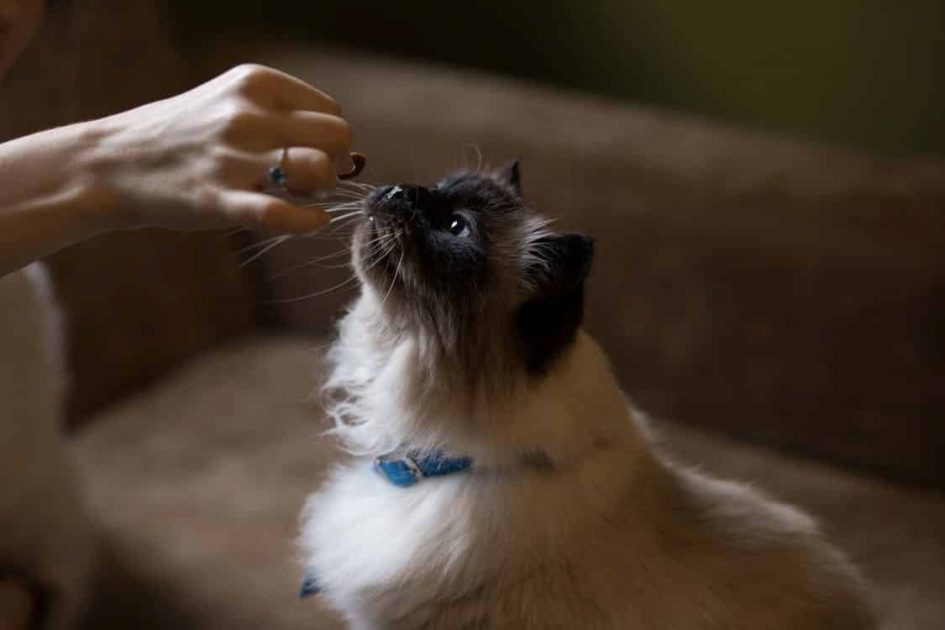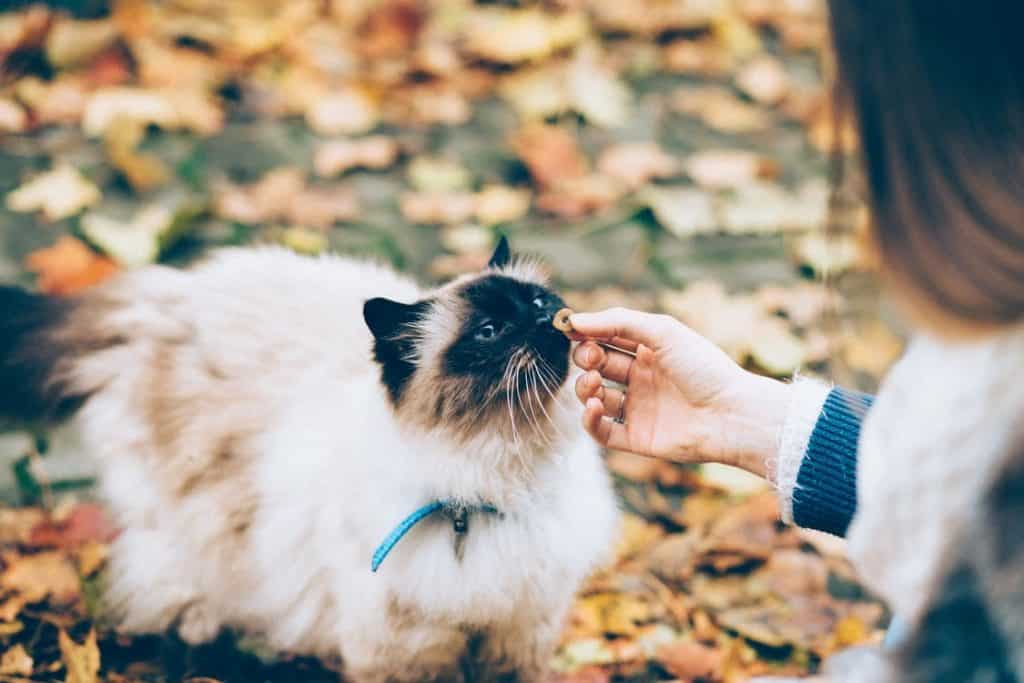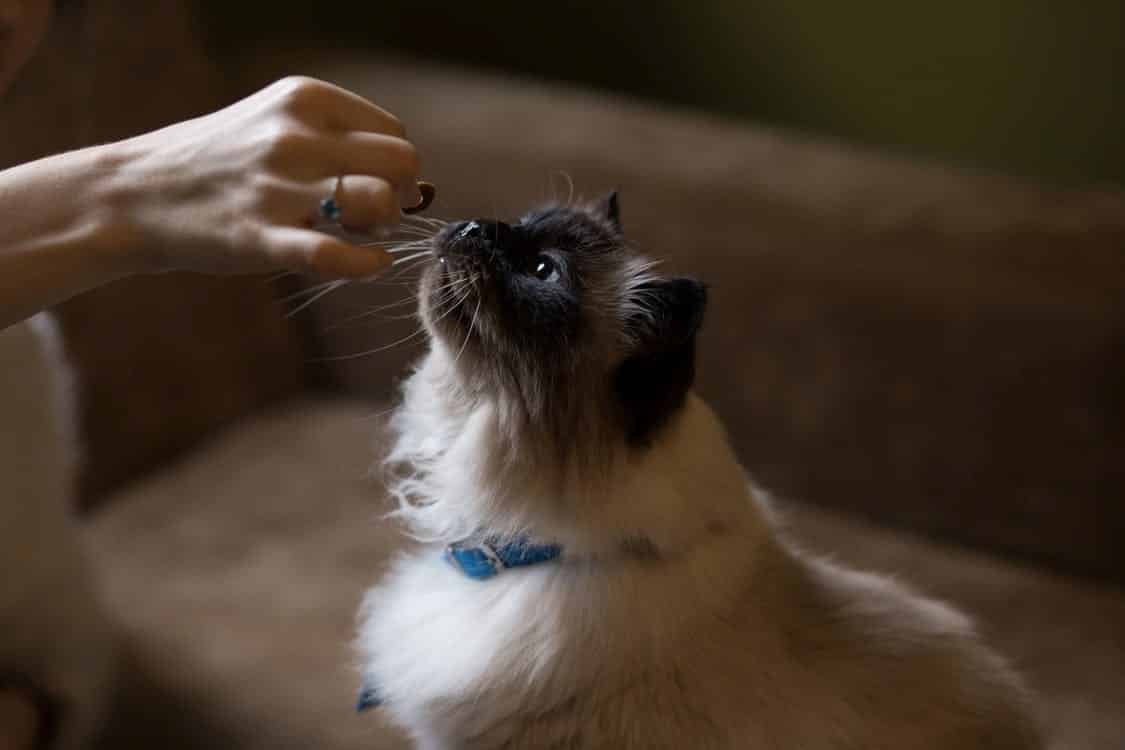

Can Cats Eat Chocolate? All you need to know
Chocolate is one of the most widely consumed foods in almost every home but is it safe for our feline friends? Can cats eat chocolate? Find out in this blog.
Chocolate is one of those food items that are commonly found in virtually every home. Therefore, it’s only natural for cat owners who are conscious of their pet’s diet to wonder whether it is safe for their cat or not. Whether you are bringing a feline friend for the first time into your house or caught them eating from your stash of cocoa products, you are likely to ask, ‘can cats eat chocolate?’
The simple, no-nonsense answer to this question is NO.
Chocolate is not safe for cats, and you should prevent your cat from getting their paws over it at all costs. Luckily for us, most cats don’t find chocolate very appetizing in the first place. Unlike dogs that love to snoop around and often gate crash their owner’s stash of chocolate goodies, you will hardly find a cat doing the same. Interestingly though, it’s often uninformed (or sometimes, misinformed) cat owners who tend to coax their pet into ‘enjoying’ a chocolate treat.
Chocolate can be potentially lethal for cats. So, you should never ever give it to your pet. As we just mentioned, most cats will avoid chocolate themselves as the scent of chocolate alone is usually unappealing for them. However, cats can be attracted to certain variants or other food items made with chocolate. Chocolate milk is a common example.
In the following article, we discuss at length why chocolate is bad for cats. We highlight the symptoms of chocolate toxicity and provide a brief overview of what to do if your cat eats chocolate.

1. Why Eating Chocolate Is Bad for Cats?
There are two main ingredients in chocolate that make it dangerous for many animals, including cats. These are caffeine and theobromine.
Caffeine and theobromine are a type of stimulant naturally found in cacao – the seeds of a tropical evergreen tree that are used to make cocoa powder and chocolate. Like many other plant alkaloids, these natural chemicals are proven to be toxic for cats and various other animals, for that matter. According to a study published in the journal Frontiers in Pharmacology, caffeine and theobromine are not safe for cats because they directly affect the function of the heart and the central nervous system.
The word theobromine comes from the Latin name for the cacao plant, Theobroma, which means ‘food for the gods.’ While theobromine is what gives chocolate its characteristic taste and smell that we love, it is also exactly what makes this item hazardous for our feline friends.
2. How Much Chocolate Causes Toxicity in Cats?
The general rule is that any amount of this delicious human food is unsafe for your cat.
The minimum amount of chocolate that can be toxic to cats depends on a range of different factors, including the size of the cat, type of chocolate ingested, and so on.
For example, baking chocolate along with the semi-sweet and dark varieties contain a fairly high content of theobromine than milk chocolate. White chocolate is rarely a concern for causing toxicity in cats because of its low theobromine level.
Milk chocolate and cocoa powder also have a relatively lower concentration of this compound as compared to dark chocolate. But they are still dangerous for your cat.
Cat owners should never give any chocolate or food containing even trace amounts of chocolate to their pet because there is no way of knowing how much can be poisonous.
A cat may devour a handful of wrapped chocolate drops or drink a whole cup of chocolate milk and still not show any signs of toxicity. On the other hand, a cat that ingests as little as one small square of solid chocolate might have to be rushed to the pet’s ER immediately.
3. What To Do If My Cat Ate Chocolate?
If you suspect that your feline friend has treated themselves to some chocolate, you must keep a close eye on them for a while. Ideally, you should prevent them from going outdoors so that you can monitor them properly. Make sure to close all doors and windows and keep them inside for at least 24 hours.
Meanwhile, you need to watch out for any of signs of illness. The most common symptoms of chocolate poisoning in cats include:
- Vomiting
- Diarrhea
- Nausea
- Restlessness/ hyperactivity
- Increased heart rate
- Heavy breathing or panting
- Excessive or uncontrolled urination
- Increased body temperature
- Muscle rigidity
- Tremors or seizures
- Low blood pressure (dilated pupils and decreased body temperature)
If they exhibit any of these signs, take them to a vet or contact the pet poison hotline without any further delay.
If you caught your pet in the act of eating chocolate, you must take them to the vet rather than waiting for any symptoms to develop. This is because a vet can help get rid of the toxic substances from your cat’s body before it causes any adverse health effects. They most often do this by inducing vomiting or giving special fluids to naturally drain out the harmful chemicals from your cat’s system.
However, it’s important that you don’t try to induce vomiting in your cat by yourself unless explicitly advised by a qualified vet.
If you catch your feline friend eating chocolate, it’s a good idea to try to identify exactly what amount they might have eaten. Save the wrapper or food packaging as it can help the vet in treating your pet. If speaking with pet poison control or your vet over the phone, make sure to let them know your cat’s weight, size, age, and breed too. It assists them in assessing the risk to your pet.

4. How to Prevent Chocolate Poisoning in Cats?
The best way is to keep all types of chocolate and foods made with chocolate out of your cat’s reach. Cats can be quite unpredictable. So, even if your cat is visibly repelled by cocoa products, it’s no reason to leave any chocolate items lying around.
Store all your chocolate-containing items in tightly sealed containers. Again, remember it’s not just chocolate bars you need to stay cautious of. You need to keep brownies, cookies, cake, donuts, chocolate milk bottles, etc., at a safe distance too.
5. Can Cats Eat Chocolate?
With all the aforementioned information, hopefully, you remember that the answer to this question is always a strong NO!
Discover how to create a joyful, healthy home for your pet.
Subscribe to your weekly rundown of practice, real life ideas and training tips straight to your inbox.





